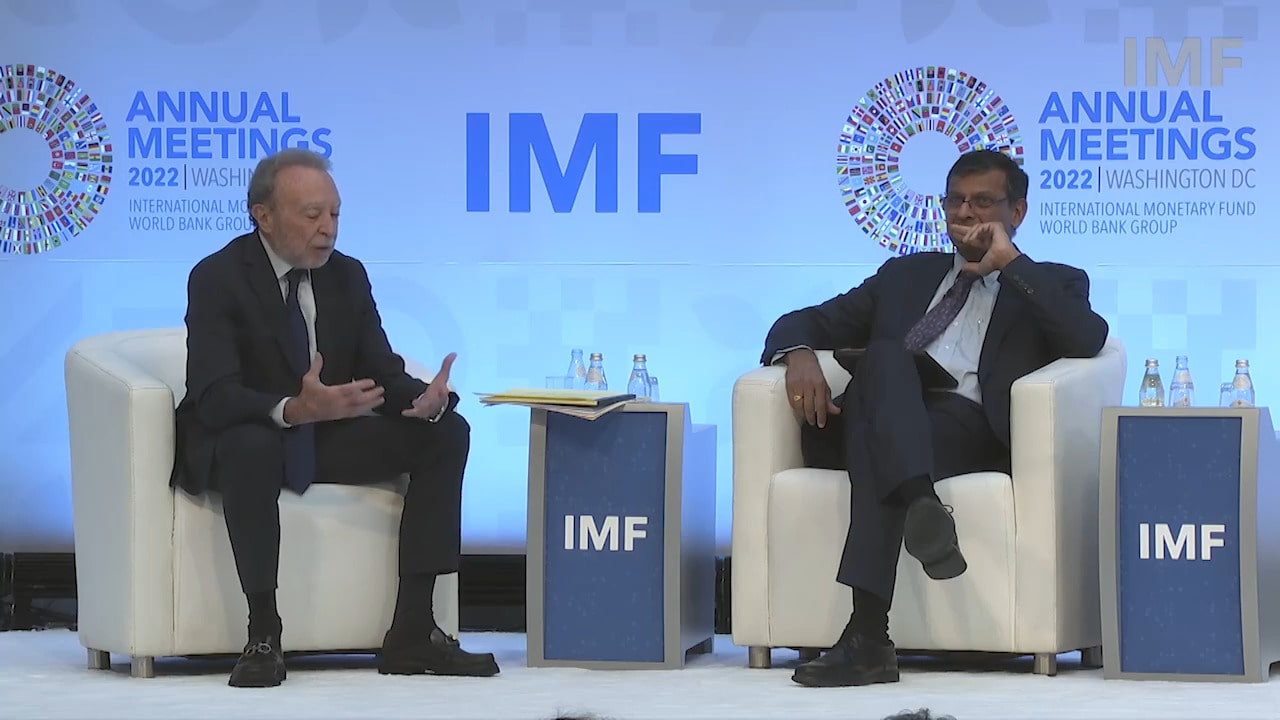This slowdown comes at a time when the world has yet to fully recover from the brutal but short-lived recession caused by Covid-19 in 2020 and may now suffer the consequences of the conflict in China. East, especially in terms of oil prices. A series of previous shocks, including the pandemic and Russia’s war in Ukraine, have caused global economic output to fall by about $3.7 trillion over the past three years compared to pre-Covid trends.
“The global economy is limping along, not sprinting,” Pierre-Olivier Gourinchas, the IMF’s chief economist, said during a press conference at the organization’s annual meeting in Marrakech, Morocco. The IMF’s expectation of 3% growth this year was down from 3.5% in 2022, but remained unchanged from its July forecast. Gourinchas said it was “too early” to assess the impact on global economic growth of the days-long war between Israel and the Palestinian militant group Hamas in Gaza. He said the IMF was “monitoring the situation closely” and noted that oil prices had risen about 4% in recent days. “
We have seen this in previous crises and conflicts. And of course, this reflects the potential risk of disruption to oil production or transportation in the region,” he said. Gourinchas said that, if maintained, a 10% increase in oil prices will reduce global economic growth by 0.15% and increase global inflation by 0.4%. “But again, I emphasize that it is really too early to draw hasty conclusions here,” he added. So far, the global economy has shown “remarkable resilience” at a time when the US Federal Reserve and other central banks around the world have aggressively raised interest rates, Gourinchas said. interest rate to counter the rise of inflation.
These increases have helped ease price pressures without putting many people out of work. That combination, he said, is “increasingly consistent” with a so-called soft landing — the idea that inflation can be contained without triggering a recession. The IMF forecasts global consumer price inflation will fall from 8.7% in 2022 to 6.9% this year and to 5.8% in 2024.
The United States features prominently in the IMF’s latest World Economic Outlook, released before the outbreak of war between Israel and Hamas.
The IMF raised its US growth forecast this year to 2.1% (corresponding to 2022) and to 1.5% in 2024 (a sharp increase compared to the 1% forecast in July). The United States, an energy exporter, has not been hit as hard as countries in Europe and elsewhere by oil prices that spiked after Russia’s invasion of Ukraine last year and have increased more recently due to cuts. reduce Saudi Arabia’s output. And most of all, American consumers are willing to spend the savings they accumulated during the pandemic.
The situation is even bleaker in the 20 countries that share a common currency and are more exposed to rising energy prices. The IMF has lowered euro zone growth to 0.7% this year and to 1.2% in 2024. She actually expects the German economy to contract by 0.5% this year, before returning to 0.9% growth next year. China’s economy, the world’s second largest, is expected to grow 5% this year and 4.2% in 2024 – both down from the IMF’s forecast in July. China’s economy is expected to rebound this year after the communist government ended draconian “no-Covid” lockdown measures that crippled growth in 2022.
But the country This country is struggling with problems related to an overbuilt real estate market. The IMF once again expressed concern that the world’s countries are dividing into geopolitical blocs that could limit international trade and economic growth globally.
The United States and its allies have imposed unprecedented sanctions on Russia for its invasion of Ukraine and sought to become less dependent on Chinese imports as tensions with Beijing rise. The IMF noted that last year, countries imposed nearly 3,000 new trade restrictions, compared with less than 1,000 restrictions in 2019. The organization forecast international trade growth of just 0.9% for the year today and 3.5% in 2024, a sharp decrease compared to the annual average for the period 2000-2019. is 4.9%.
Source: The week



